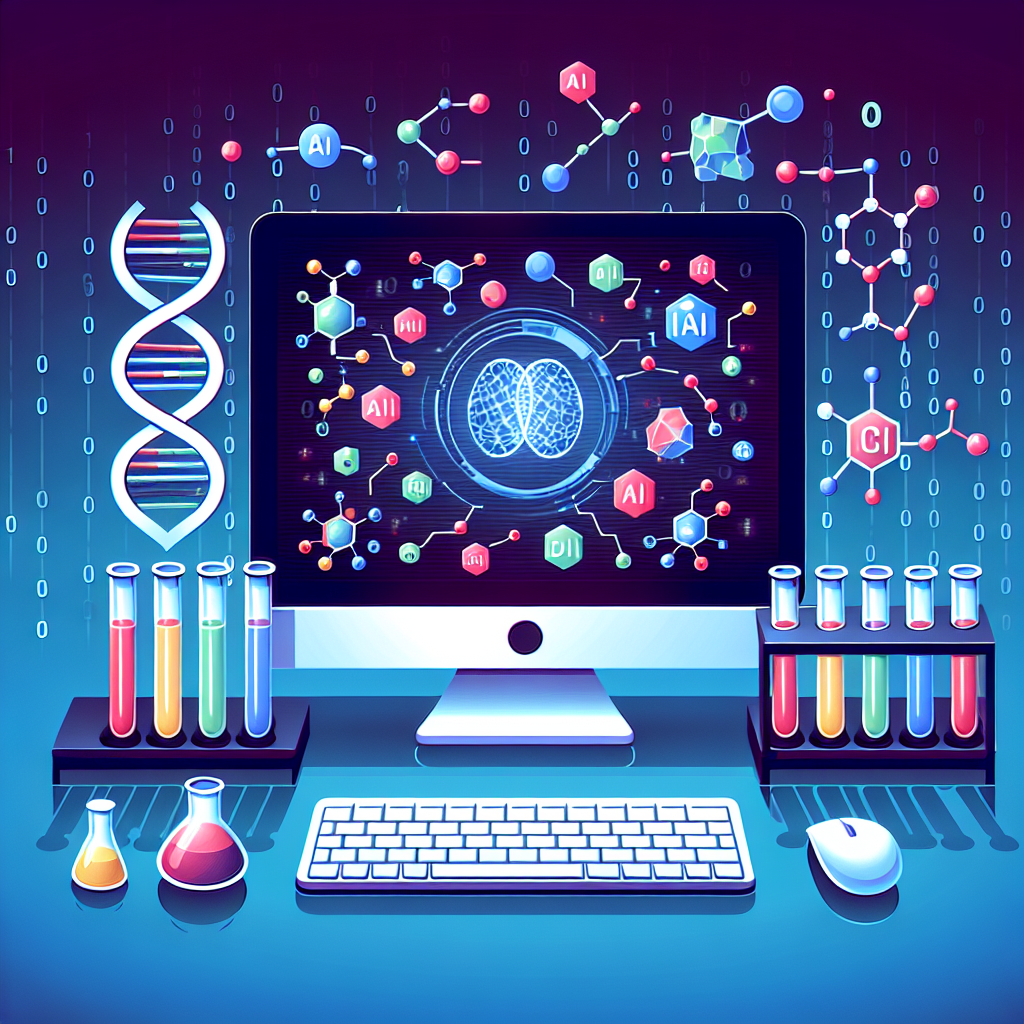Artificial intelligence (AI) has the potential to revolutionize drug discovery by streamlining the process, increasing efficiency, and reducing costs. With the ever-increasing demand for new drugs to treat a wide range of diseases, the use of AI software in drug discovery has become essential for pharmaceutical companies and research institutions. In this article, we will explore the potential of AI software in drug discovery and how it is changing the landscape of pharmaceutical research.
The Drug Discovery Process
Drug discovery is a complex and time-consuming process that involves the identification of potential drug candidates, testing them for safety and efficacy, and obtaining regulatory approval for their use in patients. Traditionally, drug discovery has relied on trial and error methods, which are costly, time-consuming, and often fail to yield successful results. However, with the advent of AI software, the drug discovery process has been revolutionized, making it faster, more efficient, and more cost-effective.
How AI Software is Used in Drug Discovery
AI software is being used in various stages of the drug discovery process to accelerate the identification of potential drug candidates and improve the success rate of drug development. One of the key areas where AI software is making a significant impact is in virtual screening, where AI algorithms are used to analyze large databases of chemical compounds and predict their potential for drug development. By using machine learning algorithms, AI software can quickly identify promising drug candidates that have the potential to be effective in treating specific diseases.
Another area where AI software is being used in drug discovery is in predicting the safety and efficacy of potential drug candidates. By analyzing data from clinical trials, electronic health records, and other sources, AI software can predict how well a drug will perform in clinical trials, identify potential side effects, and optimize dosing regimens. This can help pharmaceutical companies make more informed decisions about which drug candidates to pursue and which to abandon, ultimately reducing the time and cost of drug development.
AI software is also being used to design novel drug molecules with specific properties that are needed to treat specific diseases. By analyzing the structure of target proteins and using algorithms to predict how different chemical compounds will interact with these proteins, AI software can help researchers design new drug molecules that are more potent, selective, and safe than traditional drug compounds. This can lead to the development of more effective drugs that have fewer side effects and are better tolerated by patients.
Challenges and Limitations of AI Software in Drug Discovery
While AI software has the potential to revolutionize drug discovery, there are still some challenges and limitations that need to be addressed. One of the main challenges is the lack of high-quality data that is needed to train AI algorithms effectively. Drug discovery is a complex and multidisciplinary field that requires large amounts of data from a variety of sources, including clinical trials, genetic studies, and drug interactions. Without access to high-quality data, AI algorithms may not be able to accurately predict drug responses or identify potential drug candidates.
Another challenge is the need for collaboration between different stakeholders in the drug discovery process, including pharmaceutical companies, research institutions, regulatory agencies, and patients. AI software is only as good as the data it is trained on, and without collaboration between different stakeholders, it may be difficult to access the data needed to train AI algorithms effectively. In addition, there are regulatory and ethical issues that need to be addressed when using AI software in drug discovery, including concerns about data privacy, patient safety, and the potential for bias in AI algorithms.
Despite these challenges, the potential of AI software in drug discovery is enormous, and the field is rapidly evolving as new technologies and approaches are developed. By leveraging the power of AI software, researchers and pharmaceutical companies can accelerate the drug discovery process, reduce costs, and improve the success rate of drug development. In the coming years, we can expect to see more innovative uses of AI software in drug discovery, leading to the development of new and more effective treatments for a wide range of diseases.
FAQs:
Q: How is AI software used in drug discovery?
A: AI software is used in various stages of the drug discovery process, including virtual screening, predicting the safety and efficacy of drug candidates, and designing novel drug molecules.
Q: What are the challenges of using AI software in drug discovery?
A: Some of the main challenges include the lack of high-quality data, the need for collaboration between different stakeholders, and regulatory and ethical issues.
Q: What is the potential of AI software in drug discovery?
A: AI software has the potential to revolutionize drug discovery by accelerating the identification of potential drug candidates, reducing costs, and improving the success rate of drug development.

